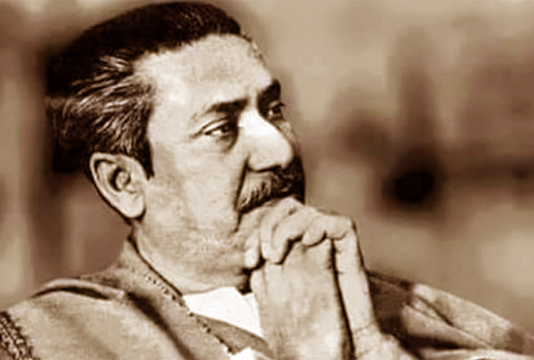DHAKA, Aug 20, 2018 (BSS) – Father of the Nation Bangabandhu Sheikh
Mujibur Rahman had engaged himself in building an inclusive education system
considering the socio-economic and political state of the country during the
post liberation period.
“Bangabandhu formed the National Education Commission for the first time
on July 26, 1972 with foremost educationist and scientist Dr Qudrat-e-Khuda
as chairman of the commission. He inaugurated activities of the commission on
September 24 in the same year,” noted economist and Chairman of Dhaka School
of Economics Dr Qazi Kholiquzzaman Ahmad told BSS.
Bangabandhu had a dream of building an independent Bangladesh with proper
education and morality, he said, adding that Bangabandhu, accordingly, formed
the education commission which was able to build an educated, science-minded
and merit-based society.
Kholiquzzaman, also Palli Karma-Sahayak Foundation (PKSF) Chairman, said
the commission that was familiar as ‘Qudrat-e-Khuda commission’ submitted its
report to the government on May 30 in 1974 with recommendations for
reorganising the country’s education system.
He, however, said implementations of the recommendations of the report
were delayed as anti liberation forces tried to destroy the country’s
education system through assassination of Bangabandhu with his family members
on August 15, 1975.
Kholiquzzaman, also co-chair of the Education Policy Formulation
Committee formed in 2009, said the Qudrat-e-Khuda commission had emphasized
on technical and stipend based education system in its report.
According to the commission’s report, the primary education was suggested
for 8 -years (Class 1 to Class VIII) duration while secondary education was
4-years’ duration, he said.
Later, in line with the Qudrat-e-Khuda commission, another Education
Commission was formed in 2000 with National Professor Kabir Chowdhury as
chairman that was popularly known as ‘Kabir Chowdhury Commission’,
Kholiquzzaman added.
He said subsequently an Education Policy Formulation Committee was
formed in 2009 with National Professor Kabir Chowdhury and him as the Chair
and Co-chair respectively to formulate the Education Policy 2010.
Based on Kabir Chowdhury commission, the committee formulated the
Education Policy 2010 that was passed in the Bangladesh National Parliament
on December 7 in 2010, he added.
In the Education Policy 2010, it was suggested extending the compulsory
primary education up to 8 years (Class I to class- VIII) and providing
compulsory primary education at free of cost, Kholiquzzaman said.
The country’s education sector was changed immensely during the present
government, he said, adding, but there are still some challenges in the
sector.
He also underscored the need for formulating an education law, a
permanent education commission and an accreditation council for further
development of the sector.
Bangabandhu had a thought to take the country forward involving all, he
said, adding that Bangabandhu sent the message through the historic 7 March
speech in 1971.
The Education Policy 2010 can be termed as an inclusive education policy
as in the policy it was clearly reflected that none would be lag behind, the
eminent economist Kholiquzzaman said, adding, “We worked to bring all
together. The initiatives of setting up schools were taken where no school
was.”
As a result, 98 per cent students are coming to schools and school droop
out rate was reduced to a great extend, he said.



